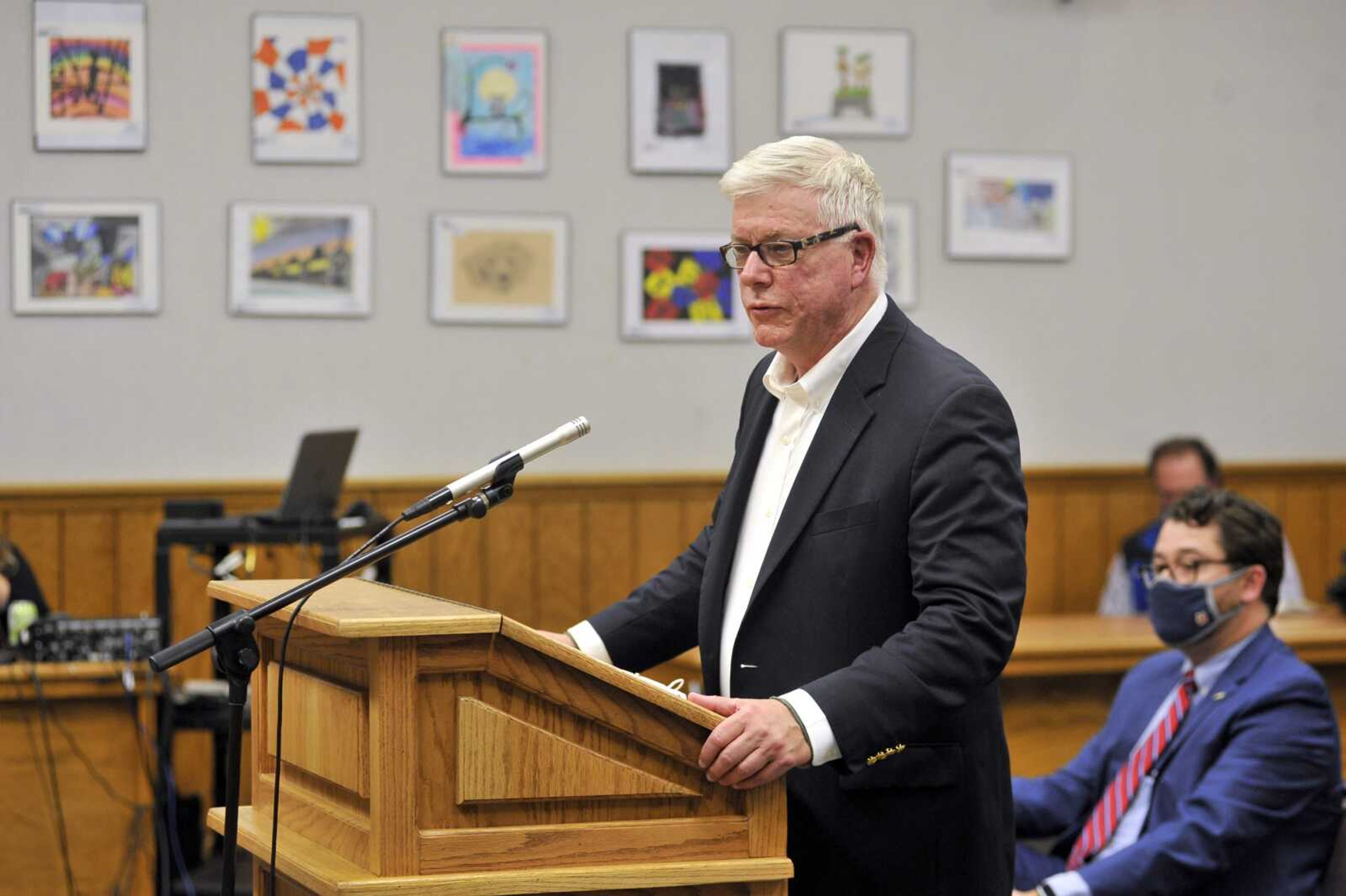Guest column: How the GOP earned state Senate majority 20 years ago
This week marks a milestone in Missouri's political history. Twenty years ago, Missouri Republicans wrung down the curtain on 53 years in the minority, going up with a slim 18-16 edge in that chamber. (So strong were the ancestral Democratic loyalties dating from the Civil War, that the GOP's last term in the majority -- 1946-1948 -- was one of only two, two-year cups of coffee in the 20th Century.)...
This week marks a milestone in Missouri's political history. Twenty years ago, Missouri Republicans wrung down the curtain on 53 years in the minority, going up with a slim 18-16 edge in that chamber. (So strong were the ancestral Democratic loyalties dating from the Civil War, that the GOP's last term in the majority -- 1946-1948 -- was one of only two, two-year cups of coffee in the 20th Century.)
The Senate table was set in the election of November 2000. Three state senators won their bids for higher office: St. Louis Democrat Lacy Clay replaced his father, winning a seat in Congress, joined by Republican Sam Graves, who won the congressional seat in northwest Missouri, while northeast Missouri Democrat Joe Maxwell won the office of lieutenant governor.
Going into that election, Republicans had shaved the seemingly eternal Democrat majority to a slim 19-15 seats, before picking up a Democratic seat in the Bootheel in November balloting.
The vacancies meant that pending the outcomes of special elections called for late January, startled Republicans held a 16-15 plurality. Two days after the November election, this writer had been elected Republican leader. We were "the dog that caught the car."
These facts presented unique challenges without precedent in Missouri history. How, exactly, to organize the chamber for business? How to appoint committee chairmen? Who would refer bills to which committees? Whom to hire as key Senate staff? Ordinarily, the majority party leader is known to be in line for the office of president pro tem -- elected by the body on the first day in early January, preceding the governor's inauguration, five days later. A further complication: The office of Senate president pro tem is an indivisible constitutional office, in the same sense as governor, auditor or attorney general. But no majority existed to select a pro tem.
Still further complication: The inaugural ceremony, with all its pomp and military precision, is in fact a joint session of the General Assembly. Who presides? Why, none other than the Senate president pro tem. But, as noted above, no such animal existed. The result was something of a Mexican standoff. Meanwhile, entirely civil conversations, and negotiations, dragged on between Democratic leader Sen. Ed Quick of Liberty and me.
I believed, and still believe, that Sen. Quick and I cut the cards and simply made the best of a tough situation. We agreed we would share the title of "co-president pro tems." Both of us would preside at the inaugural ceremony, alternately sharing the duties. One might say -- given the indivisible nature of the office -- that legal scholars would put this in the category of -- how to put this? -- an "extra-Consttutional" act. We got through the inauguration. Senate business proceeded. This uneasy arrangement seemed to work as well as could be expected. Senators and staff, joined by lobbyists and the media, the governor and hangers-on, uneasily awaited the special elections, held 20 years ago this week.
Widely believed conventional wisdom -- so often wrong -- held that we would end up in a 17-17 tie. All agreed the Lacy Clay seat in St. Louis would remain Democrat. Nearly all knew we would win the Sam Graves seat in northwest Missouri. Most concluded that Democrats would hold the Joe Maxwell seat in northeast Missouri they'd held for 80 years, and for all but a few since we entered the Union in 1821.
In this last, the conventional wisdom once again proved wrong. These first two predictions were dead on, each party winning one. But in the historically Democratic Little Dixie counties of northeast Missouri, cattleman and first-time candidate John Cauthorn pulled off a stunning victory for Republicans. We had earned our first majority since the 1940s.
When he called with hearty congratulations, I asked then-Missouri Sen. Kit Bond what it would be like to be pro tem, and leader of a gang of fiercely independent senators whom you can't fire. "Will it be like herding cats?" Bond's response: "No. More like loading frogs into a wheelbarrow."
Not for the first time, Sen. Bond proved right. Twenty-two months later, House Republicans surged to their first majority since holding one for a brief few months in the early 1950s. So this week, our swollen Republican majorities in the General Assembly, endorsed and re-endorsed at every election since, now enter their third decade. My home state, historically so heavily dominated by the Democratic Party of both my grandfathers, was reliably Democrat no more.
Peter Kinder is the former lieutenant governor of Missouri. He resides in Cape Girardeau.

